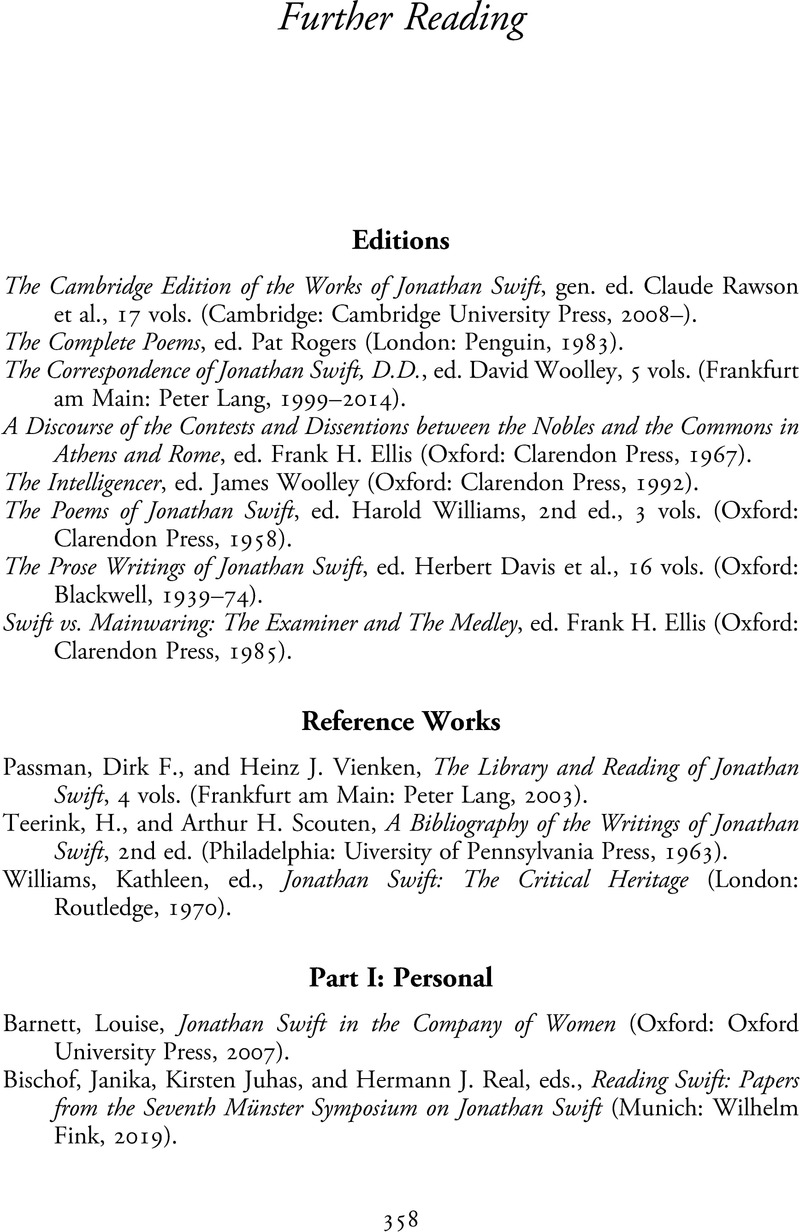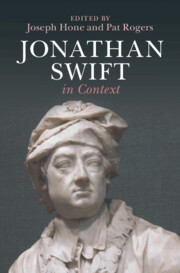Book contents
- Jonathan Swift in Context
- Jonathan Swift in Context
- Copyright page
- Contents
- Notes on Contributors
- Preface
- Acknowledgements
- Chronology
- Abbreviations
- Part I Personal
- Part II Publishing History and Legacy
- Part III Literary Background
- Part IV Genres
- Part V The External World
- Part VI Social and Intellectual Topics
- Further Reading
- Index
- References
Further Reading
Published online by Cambridge University Press: 02 May 2024
- Jonathan Swift in Context
- Jonathan Swift in Context
- Copyright page
- Contents
- Notes on Contributors
- Preface
- Acknowledgements
- Chronology
- Abbreviations
- Part I Personal
- Part II Publishing History and Legacy
- Part III Literary Background
- Part IV Genres
- Part V The External World
- Part VI Social and Intellectual Topics
- Further Reading
- Index
- References
Summary

- Type
- Chapter
- Information
- Jonathan Swift in Context , pp. 358 - 364Publisher: Cambridge University PressPrint publication year: 2024



